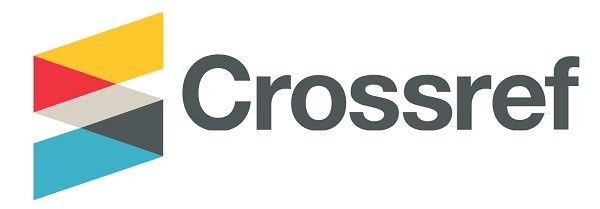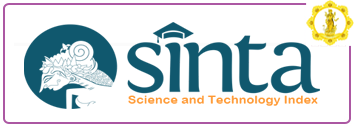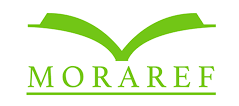MODEL PBL BARU UNTUK MENINGKATKAN KETERAMPILAN DAN KETERLIBATAN MAHASISWA
DOI:
https://doi.org/10.25078/jpm.v10i01.3631Keywords:
problem-based learning, student engagement, problem solvingAbstract
This study examines the effectiveness of a newly proposed Problem-Based Learning (PBL) model compared to the conventional approach among second-year students in the Diploma III Program in Informatics Engineering at Computer Engineering and Informatics Department POLBAN. While the conventional PBL model follows a linear approach, the new model introduces a two-stage learning process with a focus on group formation after the initial phase. The analysis encompasses problem-solving skills, perceptions, and student engagement in PBL. Findings indicate a significant superiority of the new PBL model over the conventional one. Notably, the new model reduces instances of free riders, and students initially categorized as low achievers exhibit notable improvement, transitioning to moderate achievers. Additionally, students initially classified as medium achievers progress to the good category. These results underscore the importance of active participation and individual development in enhancing educational outcomes. The study contributes insights into refining PBL methodologies to foster deeper student engagement and improve problem-solving abilities in higher education settings.
Downloads
References
Chávez, D. A., Gamiz-Sanchez, V. M., & Vargas, A. C. (2020). Problem-Based Learning: Effects on Academic Performance and Perceptions of Engineering Students in Computer Sciences. Journal of Technology and Science Education, 10(2), 306–328. https://doi.org/10.3926/jotse.969
Cordova, L., Carver, J., Gershmel, N., & Walia, G. (2021). A Comparison of Inquiry-Based Conceptual Feedback vs. Traditional Detailed Feedback Mechanisms in Software Testing Education: An Empirical Investigation. In SIGCSE 2021 - Proceedings of the 52nd ACM Technical Symposium on Computer Science Education (Vol. 1, Issue 1). Association for Computing Machinery. https://doi.org/10.1145/3408877.3432417
de Jong, N., van Rosmalen, P., Brancaccio, M. T., Bleijlevens, M. H. C., Verbeek, H., & Peeters, I. G. P. (2022). Flipped Classroom Formats in a Problem-Based Learning Course: Experiences of First-Year Bachelor European Public Health Students. Public Health Reviews, 43, 1–9. https://doi.org/10.3389/phrs.2022.1604795
Espey, M. (2018). Enhancing critical thinking using team-based learning. Higher Education Research & Development, 37(1), 15–29. https://doi.org/10.1080/07294360.2017.1344196
Ferreira, M. M., & Trudel, A. R. (2012). The Impact of Problem-Based Learning (PBL) on Student Attitudes Toward Science, Problem-Solving Skills, and Sense of Community in the Classroom. The Journal of Classroom Interaction, 47(1), 23–30. http://www.jstor.org/stable/43858871
Jabarullah, N. H., & Iqbal Hussain, H. (2019). The effectiveness of problem-based learning in technical and vocational education in Malaysia. Education + Training, 61(5), 552–567. https://doi.org/10.1108/ET-06-2018-0129
Karan, E., & Brown, L. (2022). Enhancing Students’ Problem-solving Skills through Project-based Learning. Journal of Problem Based Learning in Higher Education, 10(1), 74–87. https://doi.org/10.54337/ojs.jpblhe.v10i1.6887
Newhouse, C. P. (2017). STEM the Boredom: Engage Students in the Australian Curriculum Using ICT with Problem-Based Learning and Assessment. Journal of Science Education and Technology, 26(1), 44–57. https://doi.org/10.1007/s10956-016-9650-4
Nunez-del-Prado, M., & Gomez, R. (2017). Learning data analytics through a Problem Based Learning course. 2017 IEEE World Engineering Education Conference (EDUNINE), 52–56. https://doi.org/10.1109/EDUNINE.2017.7918180
O’Grady, M. J. (2012). Practical Problem-Based Learning in Computing Education. ACM Trans. Comput. Educ., 12(3). https://doi.org/10.1145/2275597.2275599
Ribeiro, A. L., & Bittencourt, R. A. (2019). A Case Study of an Integrated Programming Course Based on PBL. 2019 IEEE Frontiers in Education Conference (FIE), 1–9. https://doi.org/10.1109/FIE43999.2019.9028579
Richardson, I., & Delaney, Y. (2009). Problem Based Learning in the Software Engineering Classroom. 2009 22nd Conference on Software Engineering Education and Training, 174–181. https://doi.org/10.1109/CSEET.2009.34
Schmidt, H. G., Rotgans, J. I., & Yew, E. H. J. (2011). The process of problem-based learning: what works and why. Medical Education, 45(8), 792–806. https://doi.org/https://doi.org/10.1111/j.1365-2923.2011.04035.x
Yew, E. H. J., & Goh, K. (2016). Problem-Based Learning: An Overview of its Process and Impact on Learning. Health Professions Education, 2(2), 75–79. https://doi.org/https://doi.org/10.1016/j.hpe.2016.01.004








